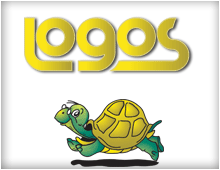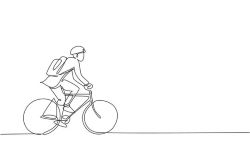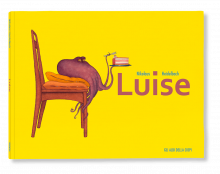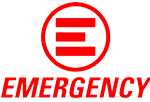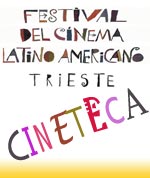Tag: Mostra Communication
Totale: 88
The Europa Diary: how to be a consumer and a citizen
The content is chosen by the European Commission according to topics of interest to young people aged 15 to 18, and is then drafted by a team of professional writers. Since 2004, the Europa Diary has dealt with issues such as consumer credit, counterfeiting, e-commerce, climate change, fair trade, the dangers of tobacco and alcohol use, sexually transmitted diseases, etc.The Diary may also be partially adapted to each country. National partners of Generation Europe may, on the one hand, choose or refuse certain articles according to ... continua
- Visualizzazioni: 2527
- Lingua:
 | Sottotitoli:
| Sottotitoli: 
- Fonte: Mostra | Durata: 07.08 min | Pubblicato il: 07-03-2008
-

- Categoria: Informaciones
- Tag: Mostra Communication
- Scarica: MP3 | MP4 | alta risoluzione
- Condividi Commenta
Banning misleading labels in Europe
Food products will need to meet the requirements of nutrient profiles to bear nutrition and health claims. Nutrient profiles will be based on the content of nutrients such as fat, saturated fat, trans-fatty acids, salt and sugars, excessive intakes of which in the overall diet are not recommended. Nutrition claims can fail one criterion, i.e. if only one nutrient (salt, sugar or fat) exceeds the limit of the profile a claim can still be made. In such cases the high level of that particular nutrient must be clearly marked on the label, ... continua
- Visualizzazioni: 2798
- Lingua:
 | Sottotitoli:
| Sottotitoli: 
- Fonte: Mostra | Durata: 09.16 min | Pubblicato il: 18-02-2008
-

- Categoria: Informaciones
- Tag: Mostra Communication
- Scarica: MP3 | MP4 | alta risoluzione
- Condividi Commenta
Better information for better eating habits
The rules that govern nutrition labelling have already been in force for over a decade. In general nutrition labelling is included on a voluntary basis so the inclusion on most products depends on the goodwill of the agri-and-food industry. When nutrition labelling can be found, it may be difficult to find since it can be in small or very small print. Moreover, the type of labelling varies from one product to the next and from one country to the other. As a result, when filling their shopping carts, few European consumers take the time to ... continua
- Visualizzazioni: 2614
- Lingua:
 | Sottotitoli:
| Sottotitoli: 
- Fonte: Mostra | Durata: 08.58 min | Pubblicato il: 18-02-2008
-

- Categoria: Informaciones
- Tag: Mostra Communication
- Scarica: MP3 | MP4 | alta risoluzione
- Condividi Commenta
The EU and Afghanistan: Supporting renewal through security and development
The past six years in Afghanistan have been marked by a struggle to maintain the peace and build the institutions of economic and social revival. This is no easy task in a country driven by two and half decades of conflict. The EU has developed a comprehensive range of measures and missions, with an emphasis on areas of greatest concern, like the burgeoning drugs production and its impact on the security situation, as well as on progress in rural and economic development and supporting the rights of women. What progress lies beneath the ... continua
- Visualizzazioni: 2863
- Lingua:
 | Sottotitoli:
| Sottotitoli: 
- Fonte: Mostra | Durata: 11.44 min | Pubblicato il: 12-02-2008
-

- Categoria: Informaciones
- Tag: Mostra Communication
- Scarica: MP3 | MP4 | alta risoluzione
- Condividi Commenta
New technologies and energy efficiency: Save the climate with your PC!
Over half of all European households now own a computer. But with their scanners, printers and modems, personal computers can account for up to 20% of household electricity consumption. Manufacturers, encouraged by the European Commission, are therefore looking for ways to make their products consume less energy. Consumers have a role to play too. They can buy products with the Energy Star logo for their superior energy efficiency and can develop certain elementary good habits, like switching off devices when not in use. However, the ... continua
- Visualizzazioni: 2430
- Lingua:
 | Sottotitoli:
| Sottotitoli: 
- Fonte: Mostra | Durata: 08.30 min | Pubblicato il: 07-02-2008
-

- Categoria: Informaciones
- Tag: Mostra Communication
- Scarica: MP3 | MP4 | alta risoluzione
- Condividi Commenta
Climate action: putting Europe's new energy policy into practice
The European Commission’s Directorate-General Environment presents a video report on the concrete measures proposed by the European Commission. It includes interviews with key voices.
With the active involvement of the EU, the Bali Conference, last December, demonstrated that a global agreement on climate change is feasible. Today, the European Commission's new energy and climate package aims to slash the EU's greenhouse gas emissions by at least 20% by 2020, and by 30% if other industrialised countries agree to do the same.
... continua
With the active involvement of the EU, the Bali Conference, last December, demonstrated that a global agreement on climate change is feasible. Today, the European Commission's new energy and climate package aims to slash the EU's greenhouse gas emissions by at least 20% by 2020, and by 30% if other industrialised countries agree to do the same.
... continua
- Visualizzazioni: 2341
- Lingua:
 | Sottotitoli:
| Sottotitoli: 
- Fonte: Mostra | Durata: 04.22 min | Pubblicato il: 04-02-2008
-

- Categoria: Informaciones
- Tag: Mostra Communication
- Scarica: MP3 | MP4 | alta risoluzione
- Condividi Commenta
Enhancing participation to Clean Development Mechanism
The fight against climate change has been organised in such a way that it offers developing countries opportunities for economic and social development.
With their signature of the Kyoto Protocol, most industrialised countries have agreed to limit their CO2 emissions through a quota system.
If need be, however, they may make use of a mechanism that allows them to buy additional emission rights on international markets from developing or emerging economies, which have no limits on their emission levels.
If developing or emerging countries ... continua
With their signature of the Kyoto Protocol, most industrialised countries have agreed to limit their CO2 emissions through a quota system.
If need be, however, they may make use of a mechanism that allows them to buy additional emission rights on international markets from developing or emerging economies, which have no limits on their emission levels.
If developing or emerging countries ... continua
- Visualizzazioni: 2473
- Lingua:
 | Sottotitoli:
| Sottotitoli: 
- Fonte: Mostra | Durata: 08,06 min | Pubblicato il: 03-12-2007
-

- Categoria: Informaciones
- Tag: Mostra Communication
- Scarica: MP3 | MP4 | alta risoluzione
- Condividi Commenta
Facing up to a globalised world - The European Globalisation Adjustment Fund
While more open trade leads to more overall benefit for growth and jobs, the EU recognises that, although European labour markets are usually capable of coping with globalisation, the consequences can also be negative e.g. job loss. In exceptional circumstances, specific support may be needed to deal with the situation.
The EGF is a new tool to help do this and is an expression of European solidarity with the people affected. What's been described as an economic shock absorber, the EGF will provide up to 500 million euros a year for those directly affected by job ... continua
The EGF is a new tool to help do this and is an expression of European solidarity with the people affected. What's been described as an economic shock absorber, the EGF will provide up to 500 million euros a year for those directly affected by job ... continua
- Visualizzazioni: 1979
- Lingua:

- Fonte: Mostra | Durata: 10,1 min | Pubblicato il: 11-2007
-

- Categoria: Informaciones
- Tag: Mostra Communication
- Scarica: MP3 | MP4 | alta risoluzione
- Condividi Commenta
Labour Law - 'flexicurity' in a changing labour market
Labour law is an important tool, not only in dealing with the management of the workforce, but also in providing a sense of security to workers and citizens in a world of rapid change and high mobility of capital and technology.
The Commission is not aiming for a "one-size-fits-all" approach as a miracle recipe across the EU. Taking as examples the Netherlands, Belgium and Spain, the video shows how three EU member states adapt their national employment models according to the changing needs of the labour market and how they apply the concept of flexicurity.
The ... continua
The Commission is not aiming for a "one-size-fits-all" approach as a miracle recipe across the EU. Taking as examples the Netherlands, Belgium and Spain, the video shows how three EU member states adapt their national employment models according to the changing needs of the labour market and how they apply the concept of flexicurity.
The ... continua
- Visualizzazioni: 1974
- Lingua:

- Fonte: Mostra | Durata: 12,44 min | Pubblicato il: 11-2007
-

- Categoria: Informaciones
- Tag: Mostra Communication
- Scarica: MP3 | MP4 | alta risoluzione
- Condividi Commenta
Water is Life
The projects are located in and around Kitui and Makueni, two hour's outside Nairobi. The VNR "Water is life" profiles projects managed by two NGOs, AMREF and the German Red Cross, whose innovative technical approach to increasing access to safe water and hygienic sanitation facilities in rural Kenya is a crucial part of the EU's response to the perennial challenge of bringing water to those most in need. To illustrate this, the report shows exactly how, in contrast to previous initiatives, the local community is actively engaged in taking ownership of different water ... continua
- Visualizzazioni: 2500
- Lingua:

- Fonte: Mostra | Durata: 11,51 min | Pubblicato il: 11-2007
-

- Categoria: Informaciones
- Tag: Mostra Communication
- Scarica: MP3 | MP4 | alta risoluzione
- Condividi Commenta


